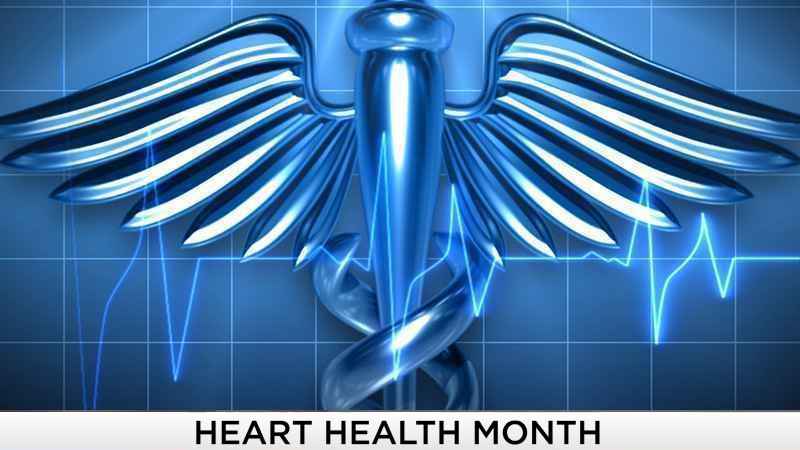UNMH cardiologist discusses nuances of heart health and COVID’s implications
[anvplayer video=”5089576″ station=”998127″]
ALBUQUERQUE, N.M. – February is American Heart Health Month – an important time to focus on yourself and the nuances of your health.
"One of the most important things that people don’t realize is that 1-in-2 adult Americans have hypertension, high blood pressure but only 1-in-4 have that blood pressure under control," Dr. Achrekar said. "That’s a massive amount of people that are at risk for stroke and heart attack, so they should be seeing their doctors."
Dr. Abinash Achrekar says 80% of cardiovascular disease is preventable. The American Heart Association also lists ‘Life’s Simple Seven’, where you can learn more about the steps you can take toward better heart health – such as being active, eating better and quitting smoking.
However, heart health is more than taking the right steps. It also means knowing what’s going on with your body, such as understanding the life-saving differences between a heart attack and a stroke.
"When you’re having a heart attack, the symptoms are pressure in the chest or discomfort in the upper chest area – sometimes with or without shortness of breath and sometimes like when you get very sweaty or clammy or nauseous," Dr. Achrekar said.

For strokes, remember the acronym, FAST: Face. Arm. Speech.Time.
"Do you have facial droop, like when you’re smiling – is it not equal? Are one of your arms weaker than the other? Is your speech garbled? If any of those things are a concern at all, the last T in ‘FAST’ is Time – call 911 right away with Time because time is of the essence with having a heart attack and having a stroke," Dr. Achrekar said.
If you are experiencing either set of symptoms or if you think you are having a heart attack or stroke, call 911 immediately. Even while New Mexico hospitals are in crisis standards of care, doctors recommend never waiting when you are experiencing symptoms.
Amid the pandemic, you should also focus on your heart health if you have been infected with COVID.
A new study published this month in Nature’s Medicine found that COVID can leave patients at a greater risk for heart problems for at least a year after getting infected.
"What I can tell you is that if you do get COVID, your chances of going on to develop heart disease – even if you didn’t have heart disease – is probably one-and-a-half to two-and-a-half times greater than if you never had COVID."
The study was done on unvaccinated patients because the vaccine wasn’t available at the time. It found COVID increased the risk for heart failure by 72%, heart attacks by 63% and strokes by 62% – even if you had mild symptoms.
"The idea of ‘Let’s just get COVID, let me get infected and get it over with’ is really just bad advice – because anytime somebody gets an infection, it’s an unknown," Dr. Achrekar said. "We don’t know if it’s going to be a mild infection or a severe infection, so the best way to protect yourself right now is to get vaccinated and to follow public health guidelines."
Another step you can take to protect yourself is to avoid smoking and vaping. Experts say about 1-in-5 New Mexicans are using tobacco products, which can lead to even worse outcomes.
"Their chances of developing severe COVID are phenomenally higher," Dr. Achrekar stated, "so if you are out there smoking and vaping you should really consider curtailing those things because if you do develop COVID, you’re likely going to get very sick."